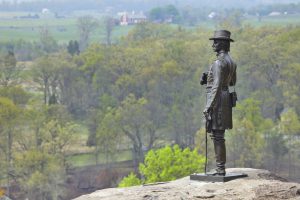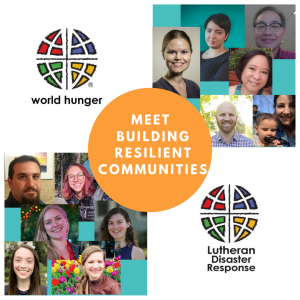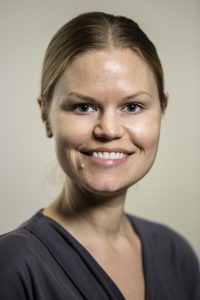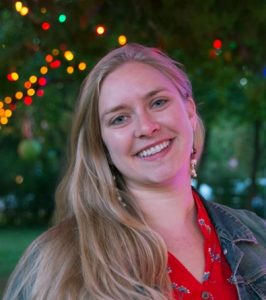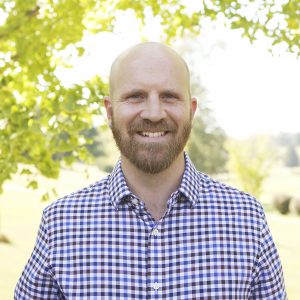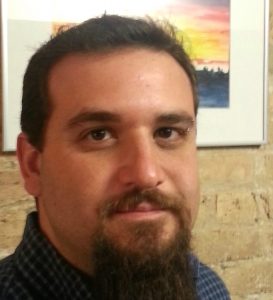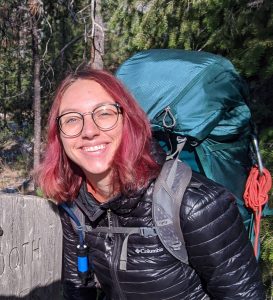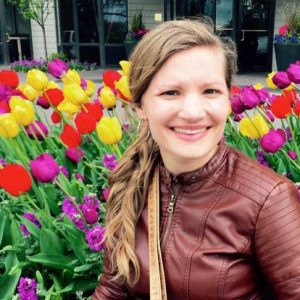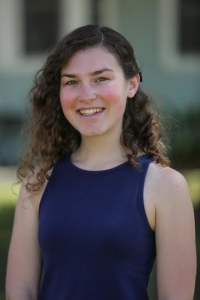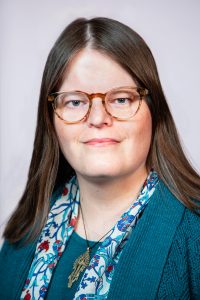Following are updates shared from submissions of the Lutheran Office for World Community and state public policy offices.
Find a map and full list of ELCA affiliated SPPOs using our state office map.
U.N. | California | Colorado | Minnesota | Pennsylvania | Washington | Wisconsin
U.N.
Lutheran Office for World Community, United Nations, New York, N.Y. https://www.elca.org/lowc –Dennis Frado, Director
LOWC Program Director Christine Mangale comments on the recently concluded session of the UN Commission on the Status of Women: LOWC Program Director Christine Mangale was interviewed recently by Lutheran World Information about the 65th session of the UN Commission on the Status of Women. Commenting on the need to continue to hold governments accountable for their Agreed Conclusions, Mangale said, “The focus now is national level monitoring and engaging with governments by continuing to knock on their doors. As long as we keep asking questions, they know we are following up, but otherwise the work just gets swept under the rug.” The largely virtual (due to COVID-19) meeting excluded on-site participation by non-governmental society groups, including the churches. In normal years, Lutheran World Federation delegates are physically present. “Usually we meet with them, we sit down and ask them to push for particular issues,” Mangale reflects. LWF seeks to “shape global policies that impact us at national and local level,” but “How do we make sure our voice is heard in this huge virtual gathering of more than 10.000 people?” On the plus side, this year there were 70 participants attending online events while the usual size of the delegation is about 30. The CSW experience is part of a larger empowerment effort by the LWF. Mangale says “Women are the pillars of our congregations, so this is where the work comes to life through storytelling and sharing of experiences. Women can address leadership obstacles in their communities, they can engage local councilors, run for posts as village elders or members of parliament and feel part of the process for change.”
Briefing from leaders of the Evangelical Lutheran Church in the Central African Republic: In late April LOWC Director, Dennis Frado, was privileged to be briefed by the President and Vice-President of the Evangelical Lutheran Church in the Central African Republic (CAR) on recent developments in their country. In a meeting facilitated by ELCA Regional Representatives Anne and Willie Langdji, the Rev. Joseph Ngoe, President and the Rev. Rachel Doumbaye, Vice-President, spoke of the high level of insecurity in parts of the CAR, especially around Bouar, the capital of Nana-Mambéré Prefecture, where the church headquarters is located. The population of CAR continues to be plagued by attacks from various armed groups which have created a very dangerous and unstable security situation, despite efforts by the weak national army and United Nations peacekeepers to maintain order. The briefing will help LOWC better advocate for the people of CAR with various UN entities, including the Security Council.
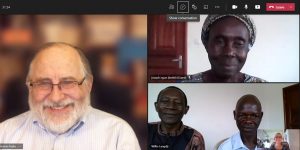
Photo credit: Anne Langdji, ELCA Regional Representative, Cameroon.
Bolivian Church President speaks on Christian identity and indigeneity: On April 22, Bolivian Lutheran Church President, the Rev. German Loayza, participated in a virtual parallel event in conjunction with the 20th Session of the UN Permanent Forum on Indigenous Issues. The event, “Identity at the intersection of Indigeneity and Christianity: An indigenous dilemma,” was organized by the Anglican Communion Office at the United Nations and co-sponsored by The Lutheran World Federation, The Episcopal Church, The United Methodist Church-General Board of Church and Society and the World Council of Churches. The event was moderated by Archbishop Mark Macdonald, National Indigenous Anglican Archbishop, Anglican Church of Canada and featured other participants: the Rev. Dr. Bradley Hauff from the Oglala Sioux nation (South 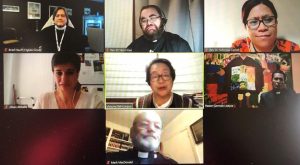 Dakota, USA), the Rev. Dr. Hirini Kaa, Photo credit: Lynnaia Main, The Episcopal Church Kaiārahithe, a member of the Maori of Aotearoa (New Zealand), Ms. Victoria Tauli Corpuz, a member of the Kankana-ey Igorot people (The Philippines) and former United Nations Special Rapporteur on the rights of indigenous peoples and the Rev. Dr. Seforosa Carroll, a member of the indigenous Rotuman people (Fiji).
Dakota, USA), the Rev. Dr. Hirini Kaa, Photo credit: Lynnaia Main, The Episcopal Church Kaiārahithe, a member of the Maori of Aotearoa (New Zealand), Ms. Victoria Tauli Corpuz, a member of the Kankana-ey Igorot people (The Philippines) and former United Nations Special Rapporteur on the rights of indigenous peoples and the Rev. Dr. Seforosa Carroll, a member of the indigenous Rotuman people (Fiji).
Photo credit: Lynnaia Main, The Episcopal Church
California
Lutheran Office of Public Policy- California https://lutheranpublicpolicyca.org/ – Regina Q. Banks, Director
Lobby Day: On May 19th, Lutherans and other Californians met on Zoom to pray, learn, and hear from the Rev. Cornell William Brooks, as well as meet with our state legislators to advocate for bills that will meet needs at the intersection of food & farming and racial justice, including AB221 (Emergency Food for All) and SB464 (Food for All).
Ecumenical Advocacy Days (EAD): This year’s virtual EAD centered Climate Justice. After three days of worship and workshops, 19 Californians representing several organizations and faith communities met with Senator Feinstein (D-CA)’s office to advocate for climate justice-oriented infrastructure and energy legislation and funding for countries and communities most impacted by climate change.
Advocacy in Quarantine: In response to COVID-19, LOPP-CA hosts briefings on state and federal legislative priorities, including a quick advocacy activity, every Wednesday at noon. One of our recent priorities is working for undocumented and mixed status California families to receive support and aid from which they are currently excluded, despite being important members of our communities.
Budget Advocacy Guide: Linked here is a budget advocacy guide from LOPP-CA. Soon we will be giving attention to the state budget and meeting with the governor’s staff and legislative staff to express our priorities and values for the state’s budget decisions.
Green California: Green California “is a network of more than one hundred organizations with a common environmental, health, and justice agenda,” including LOPP-CA. Two bills we are currently following that would expand Californians’ access to water are SB222 (Low Income Water Rate Assistance) and SB223 (Water Shut-off Protections), with both currently in Senate Appropriations.
Colorado
Lutheran Advocacy Ministry-Colorado https://www.rmselca.org/advocacy – Peter Severson, Director
Our legislative session is three-fourths complete! Lutheran Advocacy has been participating with partners in advancing important bills on our agenda. Our latest bill sheet can be found online.
Our priorities this session have been focused on renters’ protections, environmental justice, immigration, criminal justice reform, agricultural workers’ rights, and tax bills to reduce poverty.
The Lutheran Advocacy Digital Summit was held on Thursday, May 13. More info here: https://rmselca.org/digital_summit_21_info.
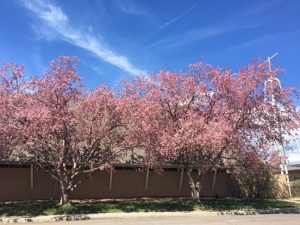
Happy May Day from Lutheran Advocacy & the Rocky Mountain Synod Bishop’s Office!
Minnesota
Lutheran Advocacy – Minnesota (LAMN) http://www.lutheranadvocacymn.org/– Tammy Walhof, Director
Legislative Session: Legislative session is almost over! House and Senate passed their respective budget bills and are now negotiating differences. Some analysts are speculating that decisions could move into special session, since differences are vast in some areas. (Last year there was a special session every month through the end of the year due to emergency declaration extensions, but many legislative decisions remained unresolved for months). This year, the two-year budget, made up of the issue area budget bills, must pass before the new fiscal year starts on July 1, or the government shuts down.
Bishop Letter: Lutheran Advocacy-MN prepared a letter signed onto by all six Minnesota bishops to advance our concerns with legislators on 1) clean energy and climate, and 2) rental evictions. Letter Link
Current Action: Call your senator on the issues in the bishop letter. Share that you are Lutheran. Mention your congregation’s involvement in clean energy/climate issues and/or affordable housing. Reference the bishop letter they have received and urge your senator to talk to their leaders about the important issues in the letter (borrow talking points from the letter). Share why you care, too! Link to find your MN State senator.
Introductory Video: We have a new video that introduces Lutheran Advocacy-Minnesota. It is only three minutes long and could have a variety of uses in your church and synod: Worship Service, Adult Forum, Offering, Church Committee Meetings, WELCA Group, Synod Assembly, Conference Meetings, etc. Please share the video and help us recruit others for advocacy action! Video Link
Pennsylvania
Lutheran Advocacy Ministry- Pennsylvania (LAMPa) https://www.lutheranadvocacypa.org/ – Tracey DePasquale, Director
In April, LAMPa staff participated in United Lutheran Seminary’s Spring Convocation on the theme “Theology of Gathering.” The convocation, beginning with worship, kicked off rogation events to be held in each synod throughout the growing season. Soil, stories pictures and prayers were gathered from each synod and campus. The prayers were woven together to be shared by all, as we pray for one another, the land, those who tend it and all who depend upon the fruits of their labor. As we pray for one another, we also act with opportunities for related advocacy to be shared throughout the season. LAMPa is grateful to our partners at ULS for the opportunity to collaborate and for developing the litany and rogation liturgy to be shared. https://youtu.be/6SI3fTDFaPg
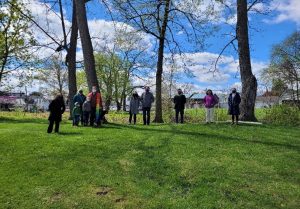 LAMPa’s Hunger Advocacy Fellow, Larry Herrold, worked to finalize advocacy and educational material and took a leading role in planning Upper Susquehanna Synod’s rogation service. He also attended Ecumenical Advocacy Days, joining Pennsylvania colleagues in virtual visits with members of Congress. He also participated in Pennsylvania Interfaith Power and Light’s Earth Day Interfaith Prayer Vigil on April 22, leading a small group in prayer and assisting in the planting of the first of 100 trees which will form a riparian buffer zone in Lewisburg, Upper Susquehanna Synod.
LAMPa’s Hunger Advocacy Fellow, Larry Herrold, worked to finalize advocacy and educational material and took a leading role in planning Upper Susquehanna Synod’s rogation service. He also attended Ecumenical Advocacy Days, joining Pennsylvania colleagues in virtual visits with members of Congress. He also participated in Pennsylvania Interfaith Power and Light’s Earth Day Interfaith Prayer Vigil on April 22, leading a small group in prayer and assisting in the planting of the first of 100 trees which will form a riparian buffer zone in Lewisburg, Upper Susquehanna Synod.
LAMPa staff also developed hunger advocacy materials to be delivered to the 200 participants of Upper Susquehanna’s Synod Assembly. LAMPa Director Tracey DePasquale taught virtual classes in two SEPA congregations and one SWPA Synod congregation.
Washington
Faith Action Network https://www.fanwa.org/ – Paul Benz and Elise DeGooyer, Co-Directors
In April we finished an amazing and unique legislative session! Amazing in the significant social change bills passed, such as Capital Gains (SB 5096) which will now fund the new Fare Start childcare program enacted this session, the Clean Fuels Standard bill (HB 1091) that will help our state reduce carbon emissions, and the largest cash grant increase for the TANF (Temporary Assistance for Needy Families) program ever (15%=$52.2M) in the 2021-23 biennial budget. Significantly, the focus on racial equity this session was unprecedented – from the number of people of color lobbying and testifying, to the bills being introduced and passed, and the number of legislators of color – now over 20. Please see our 2021 Legislative Successes for all of the bills we are celebrating!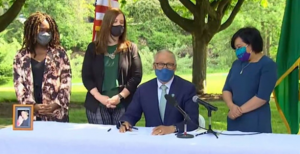
This year was also unique in that the entire session was remote! Most of the 147 legislators did not go to Olympia, with 10-20 on the floor in each chamber for votes and debates. Co-Director Paul Benz, serving as FAN lobbyist, only traveled there one time. This remote session in many ways made citizen engagement much easier by being able to sign in pro or con on bills and testify from your own home, even if it was for only 60 seconds! Senate Democratic leadership stated that 67,728 people participated in the legislative process – up from 14,000 last session. What held true, as stated before the session began, was that there would be fewer bills because of the remote session. As a result, 335 bills passed this session – the lowest number since 1983.
We are grateful for all the advocates who helped bend the arc of the universe in Washington state more towards justice.
Wisconsin
Lutheran Office for Public Policy in Wisconsin (LOPPW) https://www.loppw.org/ – Cindy Crane, Director
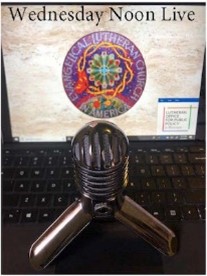 Wednesday Noon Live and Human Trafficking: We interviewed Attorney Jan Miyasaki, Executive Director of Respect Madison. “We need to make sure that the anti-human trafficking movement intersects with the social and economic justice movement and the mass incarceration movement,” said Miyasaki.
Wednesday Noon Live and Human Trafficking: We interviewed Attorney Jan Miyasaki, Executive Director of Respect Madison. “We need to make sure that the anti-human trafficking movement intersects with the social and economic justice movement and the mass incarceration movement,” said Miyasaki.
The State Budget: These are our LOPPW State Budget Priorities 2021-23, which we encouraged people to advocate on. We also testified at the virtual Joint Finance Committee (JFC) public hearing and continued our involvement with the Better Choices Coalition. The JFC decided on a long list of close to 400 items to remove, including many of our priorities. Some of the items removed from the budget could return as separate bills. We are confident that a version of Raise the Age (juvenile justice) will return, per our conversations with two legislative offices and others from our Raise the Age coalition that Kyle manages. Our climate coalition agreed to revisit our advocacy after the final budget is approved and we speak to legislators about which deleted items from the budget could return as separate bills.
Advocating on a County Level: Clergy contacted LOPPW concerned about Trempealeau County considering a resolution to become a 2nd Amendment Sanctuary. Gun Control is not one of our priorities but we offered suggestions on how to organize and advocate on a county level: Advocating to Cty. Supervisors (Trempealeau Cty). We had also created another resource for advocating on a county level several months ago.







